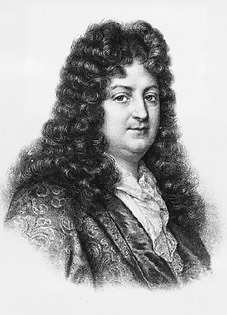 I have a couple of vivid memories from my high school AP French literature class. Our teacher, Madame Sorrell, was a lovely woman whose bright red hair tumbled in tendrils to her shoulders, and who was all chiffon scarves and jingly jewelry and heady perfume. Once she gave our class a cooking lesson. We watched her douse the baba au rhum with a healthy few glugs of rhum until it was deeply saturated. The cake tasted pretty much like a kitchen sponge soaked in rum, but I think we all thought it would have been immature not to eat it.
I have a couple of vivid memories from my high school AP French literature class. Our teacher, Madame Sorrell, was a lovely woman whose bright red hair tumbled in tendrils to her shoulders, and who was all chiffon scarves and jingly jewelry and heady perfume. Once she gave our class a cooking lesson. We watched her douse the baba au rhum with a healthy few glugs of rhum until it was deeply saturated. The cake tasted pretty much like a kitchen sponge soaked in rum, but I think we all thought it would have been immature not to eat it.
But my clearest memory is studying Racine’s Phèdre, which Madame Sorrell read with such passion. She seemed to transform herself into Phèdre’s character: “Sers ma fureur, Oenone,” read Madame Sorrell, in her deep, breathy voice, “et non point ma raison.”
I came across an interesting bit of information about the playwright, Jean Racine (1639 – 1699). He was one of three great seventeenth century French playwrights, along with Molière and Corneille, but he sounds like he was a big jerk. As a young poet, he was one of the king’s favorite “men of letters,” and he had his first play produced by Molière’s drama company. But in 1665, while his second play was being produced by Molière’s company, he made a secret agreement with a rival acting troupe to present the same play a few days later. He thought the acting was better at the other place. He also lured away Molière’s lead actress, Thérèse du Parc, and got her to join the other acting company. And also she became his mistress. That was the end of his friendship with Molière. A year into their relationship, she died.
At the height of his fame Racine retired from writing for the theater, took a cushy job as royal historiographer, and married a pious woman with whom he had seven children. In short, he opted to follow his “raison” and not his “fureur.” I doubt Mme Sorrell approved.
In 1679, eleven years after du Parc’s death, a poison scandal emerged in the court of Louis XIV. A number of people were accused of murdering prominent members of the French nobility with the help of a famed poisoner Catherine Monvoisin, known as La Voisin. Du Parc’s daughters and her stepmother accused Racine of poisoning the actress in a fit of jealousy. But his fame and favoritism with the king protected him from being prosecuted.
Erika Carroll, Potions, Poisons and "Inheritance Powders": How Chemical Discourses Entangled 17th Century France in the Brinvilliers Trial and the Poison Affair http://journals.chapman.edu/ojs/index.php/VocesNovae/article/view/330/709#_ftn87
http://www.britannica.com/EBchecked/topic/488151/Jean-Racine